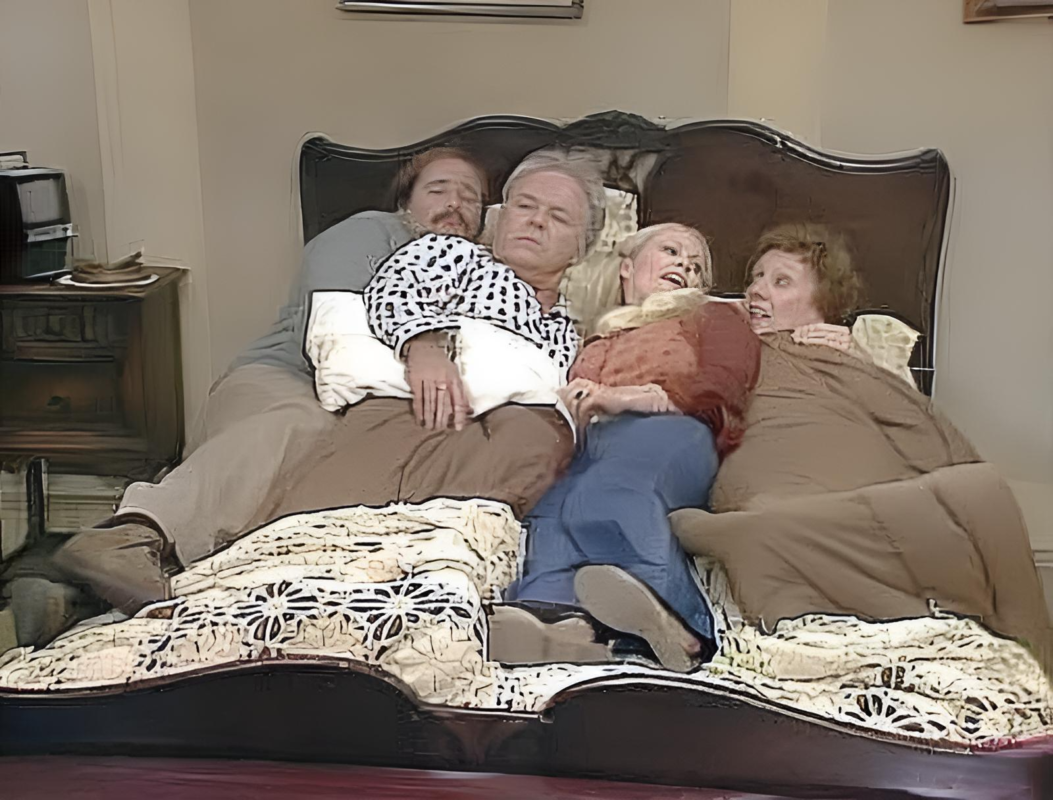
The late John Lewis, a towering figure in the Civil Rights Movement, often spoke about the importance of media in shaping societal values and attitudes. His perspective on the television show “All in the Family” offers a profound critique, connecting the show’s portrayal of race and prejudice to the broader struggles of the Civil Rights Movement.
“All in the Family,” created by Norman Lear, premiered in the early 1970s, a time when the United States was grappling with the aftermath of the Civil Rights era. The show centered on Archie Bunker, a working-class man whose bigoted views were intended to be satirical. However, John Lewis’s insights reveal the complexities and potential pitfalls of using satire to address deep-seated social issues.
Lewis, who dedicated his life to fighting for equality and justice, understood the power of media in both reflecting and influencing public opinion. “Television can be a tool for education and change,” Lewis often remarked, “but it can also reinforce harmful stereotypes and prejudice if not handled responsibly.”
In his critique of “All in the Family,” Lewis emphasized that while the show aimed to ridicule bigotry, it sometimes risked normalizing Archie’s views. “For satire to be effective, it must be clear that the bigotry being portrayed is unacceptable,” Lewis argued. “When viewers see a character like Archie Bunker, they need to understand that his views are wrong and harmful. Otherwise, there’s a danger that those views could be seen as acceptable or even humorous.”
Lewis also highlighted the broader context of the Civil Rights Movement, which sought to dismantle systemic racism and promote equality. He pointed out that “All in the Family” often focused on individual prejudice rather than addressing the structural issues that perpetuate inequality. “Racism is not just about individual attitudes,” Lewis noted. “It’s about the systems and institutions that uphold discrimination and inequality. A show that focuses solely on personal bigotry misses the larger picture.”
Moreover, Lewis was concerned about the representation of marginalized voices in media. “It’s crucial to amplify the stories and experiences of those who are directly affected by racism,” he said. “In ‘All in the Family,’ the narrative was largely driven by Archie’s perspective, which can overshadow the voices of people of color and their struggles for justice.”
Despite these critiques, Lewis acknowledged the role of “All in the Family” in sparking important conversations about race and prejudice. “The show was groundbreaking in its willingness to tackle difficult social issues,” he conceded. “It opened the door for more nuanced discussions about race in America. But we must be critical of how these discussions are framed and who is given a voice.”
Reflecting on the legacy of John Lewis, his critique of “All in the Family” underscores the need for media that not only entertains but also educates and inspires change. “We need stories that challenge us to think deeply about our values and our society,” Lewis urged. “Media should be a force for good, promoting understanding and justice.”
Lewis’s perspective calls for a more responsible and inclusive approach to storytelling. He believed in the power of media to shape a more just and equitable society, but he also recognized the responsibility that comes with this power. “As creators and consumers of media, we must demand better,” Lewis said. “We must strive for stories that uplift and empower, that challenge prejudice and promote equality.”
In honoring the legacy of John Lewis, it is important to carry forward his vision of a just society. His critique of “All in the Family” serves as a reminder that the fight for civil rights and equality is ongoing, and that media has a crucial role to play in this struggle. By critically engaging with the stories we tell and the perspectives we amplify, we can continue to work towards the dream of equality and justice that John Lewis dedicated his life to achieving.
